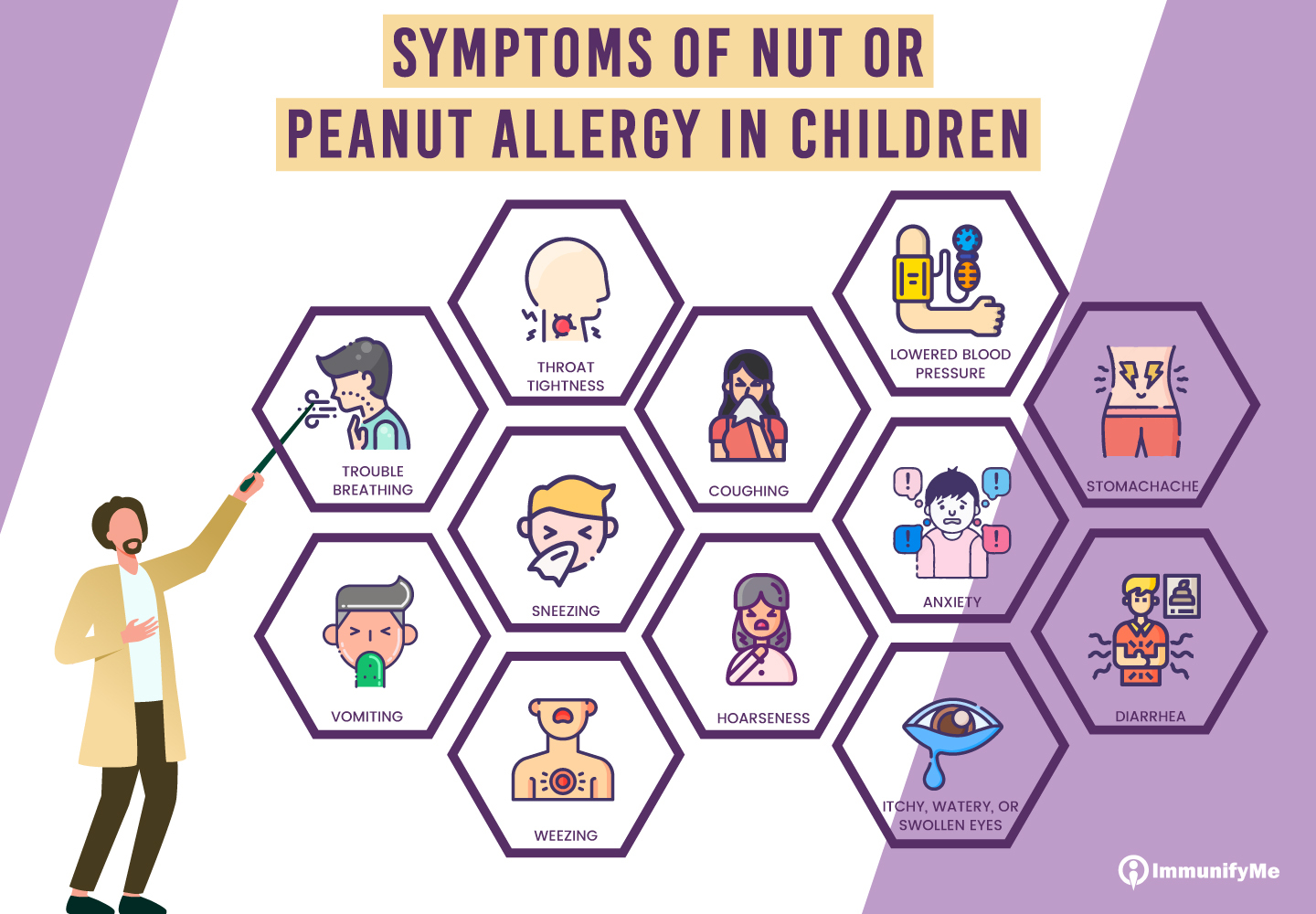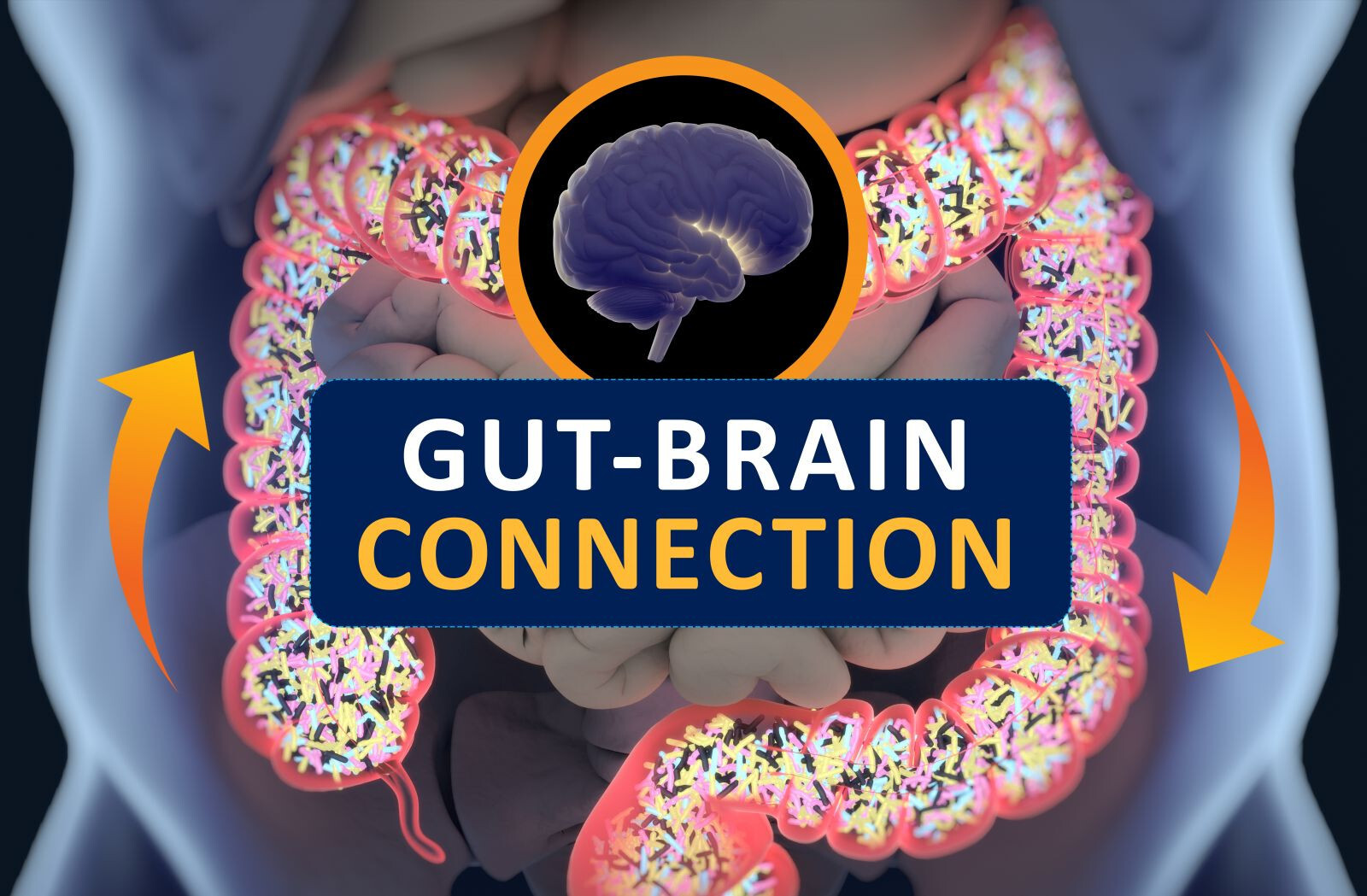When you think about an allergy, the first things that come to mind are sneezing and a runny nose. However, a nut or peanut allergy can trigger breathing difficulties and some other very dangerous health issues. Kids could be allergic to common nuts like almonds, cashews, pistachios and walnuts, or to peanuts, which actually aren’t a nut but a legume like peas and lentils. But as a parent, what do you need to know? Read up on all you need to know about a peanut and nut allergy in children.
How Do Kids Develop A Nut or Peanut Allergy?
Generally, your immune system combats infections and doesn’t let you get sick. But when you have a nut allergy, the immune system overreacts to proteins available in the nut. Hence, if a child consumes something containing nuts, the body considers its proteins as harmful invaders and responds by reacting to them. This process causes an allergic reaction.
Symptoms Of Tree Nut Or Peanut Allergy In Children
When a child suffering from a nut allergy consumes any food item that contains nuts, their body starts releasing chemicals like histamine. The release of such chemicals may cause symptoms like –
- Trouble breathing
- Throat tightness
- Coughing
- Sneezing
- Vomiting
- Hoarseness
- Wheezing
- Lowered blood pressure
- Itchy, watery, or swollen eyes
- Anxiety
- Stomachache
- Diarrhea
- Dizziness
- Hives
- Swelling
- Fainting
Moreover, the reactions to nuts and peanuts vary from person to person. Sometimes, even the same child can react differently to the same nut.
In a severe case of nut or peanut allergy, the kid can suffer from anaphylaxis, which is a sudden, deadly allergic reaction. In this condition, the suffering child’s BP may drop dangerously, breathing tubes may narrow, and the tongue may swell too much. Parents of such kids need to be extra cautious with what they eat, and they also need to have a plan to handle emergencies, like having medicines handy to stop the symptoms from getting deadly.
What Does A Doctor Do To Manage Nut Or Peanut Allergy In Children?
Usually, allergists treat such problems, but pediatricians can also help in managing the symptoms. To begin with, the doctor asks the patient about the past reactions and time it takes from eating a nut and developing symptoms, such as hives. The doctor also checks the family history of eczema or asthma to identify the threat.
The doctor may also carry out a skin test to understand how the patient’s body reacts to the smallest quantity of a particular nut that is causing the symptoms. Skin tests are the most recommended method of diagnosing the nut or peanut allergy in kids, but if more information is required, the allergist may also order a blood test.
The doctor may also give a very small quantity of allergy-causing nuts to see how the symptoms develop, but you should never try this on your own as it may prove to be fatal.
Treatment For Nut Allergy In Children
There are no medicines for nut allergies in children, and it is almost impossible to outgrow them. The only and the best option to stay safe is to avoid the nuts that trigger the allergies. Parents must be extra cautious while choosing ready-to-eat food, as they may sometimes contain nuts despite not looking like it.
One must check the ingredient list before buying or consuming any ready-to-eat food. You should also look for phrases like –
- “May Contain Tree Nuts” – It means that the manufacturing company of the product hasn’t used nuts in the product, but the manufacturer of the “ingredients” used in the product may have used nuts.
- “Produced on shared equipment with tree nuts or peanuts” – This means that the manufacturer hasn’t used nuts in the product, but has used the same machinery, utensils, or equipment that was used for manufacturing the nut-containing variant of the product.
Here are some high-risk edibles for kids with allergies –
- Ice cream
- Sauces
- Cookies and baked goods
- Candy
- Asian and African foods
To avoid complications, you should get in touch with a doctor who can advise you on how to keep your child safe in a school cafeteria, at restaurants, or in stadiums where people could be consuming nuts.
What Could Be An Emergency Plan?
The first step in the emergency plan has to be informing everyone including but not limited to teachers, school nurses, sports coaches, friends and neighbors, about the allergy, its symptoms, and course of action to control it.
The doctors generally advise the patients of anaphylaxis to keep a shot of epinephrine handy to control the symptoms. Apart from this, the doctor may also ask you to carry antihistamine medicine everywhere you go to control mild reactions.
You should never self-administer epinephrine shot or antihistamine medicine unless advised by a doctor. However, these steps are only to keep the symptoms from getting worse quickly. Hence, you must see a doctor immediately for further medical intervention.
Conclusion
Being allergic to specific nuts and peanuts is really common. Nut allergies in children are worrying but nothing to be ashamed of. Ensure the people around your child are aware of their allergies, and that at least some of them are aware of what to do in case of an emergency. You can use the nutrition plan on the ImmunifyMe app to ensure your child gets the needed nutrition from nuts while staying safe.
FAQs On Nut Allergy In Children
What Are The Symptoms Of Nut Allergy?
Some symptoms of a nut allergy include red rashes and hives, tongue swelling up, difficulty breathing, digestive issues (vomiting, nausea, cramps), tingling in the mouth and nose, and a runny nose.
How Long Does A Nut Allergy Take To Show?
Usually, a nut allergy shows itself within minutes of consuming or coming in contact with the nut, and in some severe cases, within seconds. They can also show within an hour of coming in contact with it.
Can You Have A Mild Nut Allergy?
Yes, people do have mild allergies to nuts. They face symptoms such as a runny nose, an itch in the throat, and watery eyes.
When Should I Be Concerned About Nut Allergies?
If you’ve consumed something with nuts in it, tell the people around you to watch you for signs of breathlessness, vomiting, trouble swallowing and breathing, feeling a tightness in your chest, and a stomach ache. Get medical attention as soon as you feel something is wrong.
References – [1] – Early clinical predictors of remission of peanut allergy in children
[2] – US prevalence of self-reported peanut, tree nut, and sesame allergy: 11-year follow-up






